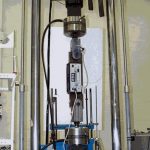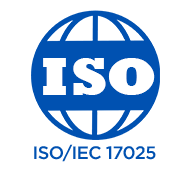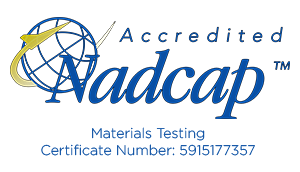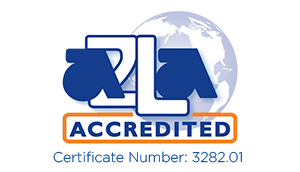Torsion Testing
 Torsion testing is done generally to understand the performance of materials and components when twisted and shear loaded. The test is done by rigidly anchoring one end of cylindrical bar or tubular sample and applying a moment to the other end so that the sample is twisted about its axis up to certain degree of twist or until failure. Occasionally moment is applied to both ends in opposite direction. Typical application involves torque tubes in four-wheel drive equipment, cables for hoisting loads, drill pipes in oil and gas drilling, etc. Typical properties measured are shear yield, ultimate shear and shear modulus.
Torsion testing is done generally to understand the performance of materials and components when twisted and shear loaded. The test is done by rigidly anchoring one end of cylindrical bar or tubular sample and applying a moment to the other end so that the sample is twisted about its axis up to certain degree of twist or until failure. Occasionally moment is applied to both ends in opposite direction. Typical application involves torque tubes in four-wheel drive equipment, cables for hoisting loads, drill pipes in oil and gas drilling, etc. Typical properties measured are shear yield, ultimate shear and shear modulus.
Type of Torsion Testing
Two type of torsion testing is done solid torsion and tubular torsion. The differentiation is based on specimen geometry. Torsion test is also done at high temperature to gather high temperature flow stress useful in modeling hot deformation of metals and alloys, like hot rolling, hot extrusion, hot forging, etc.
Capability – At TTL, we have test frame with axial torsion capability. The applied torque is limited to 1000 in-lb limiting most sample type tubular thin walled samples. The tests are done at low rate of loading
Some relevant standards:
- ASTM A938- Standard Test Method for Torsion Testing of Wire
- ASTM D1093- Standard Test Method for Stiffness Properties of Plastics as a Function of Temperature by Means of a Torsion Test
- ASTM E143- Standard Test Method for Shear Modulus at Room Temperature
- ASTM F543- Standard Specification and Test Methods for Metallic Medical Bone Screws



Touchstone is committed to providing its customers with quality, reliable test results. That is why we have undertaken the rigorous steps needed to meet and secure the most stringent of test lab accreditations including ISO/IEC 17025, NADCAP 7101 (Materials Test Lab) and NADCAP 7122-I (Non-Metallics Materials Testing).
© 2024, Touchstone Testing Labs | Design by Wheelhouse Creative

